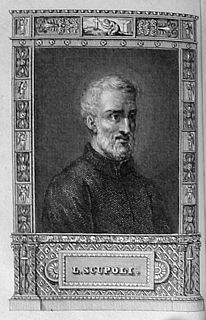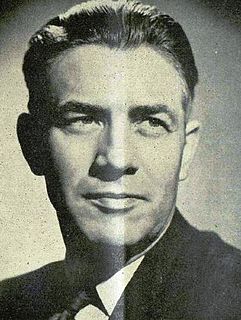A Quote by Johann Kaspar Lavater
As a man's salutations, so is the total of his character; in nothing do we lay ourselves so open as in our manner of meeting and salutation.
Related Quotes
And then, just as Wilbur was settling down for his morning nap, he heard again the thin voice that had addressed him the night before. "Salutations!" said the voice. Wilbur jumped to his feet. "Salu-what?" he cried. "Salutations!" repeated the voice. "What are they, and where are you?" screamed Wilbur. "Please, please, tell me where you are. And what are salutations?" "Salutations are greetings," said the voice. "When I say 'salutations,' it's just my fancy way of saying hello or good morning.
Character is distilled out of our daily confrontation with temptation, out of our regular response to the call of duty. It is formed as we learn to cherish principles and to submit to self-discipline. Character is the sum total of all the little decisions, the small deeds, the daily reactions to the choices that confront us. Character is not obtained instantly. We have to mold and hammer and forge ourselves into character. It is a distant goal to which there is no shortcut.
Man in his raw, natural state as he comes from the womb is morally and spiritually corrupt in disposition and character. Every part of his being-his mind, his will, his emotions, his affections, his conscience, his body-has been affected by sin (this is what is meant by the doctrine of total depravity)
We should feel with our whole heart that we have no one to rely on except God, and that from Him and Him alone can we expect every kind of good, every manner of help, and victory. Since we are nothing, we can expect nothing from ourselves, except stumblings and falls, which make us relinquish all hope of ourselves. On the other hand, we are certain always to be granted victory by God, if we arm our heart with a living trust in Him and an unshakable certainty that we will receive His help.
In the search for character and commitment, we must rid ourselves of our inherited, even cherished biases and prejudices. Character, ability and intelligence are not concentrated in one sex over the other, nor in persons with certain accents or in certain races or in persons holding degrees from some universities over others. When we indulge ourselves in such irrational prejudices, we damage ourselves most of all and ultimately assure ourselves of failure in competition with those more open and less biased.
We can not communicate with the Lord if we do not communicate with each other. If we want to present ourselves to him, we must take a step towards meeting one another. To do this we must learn the great lesson of forgiveness: we must not let the gnawings of resentment work in our soul but must open our hearts to the magnanimity of listening to others, open our hearts to understanding them, eventually to accepting their apologies, to generously offering our own.
there was no crime in unconscious plagiarism; that I committed it everyday, that he committed it everyday, that every man alive on earth who writes or speaks commits it every day and not merely once or twice but every time he open his mouth… there is nothing of our own in it except some slight change born of our temperament, character, environment, teachings and associations
In the first section of the Doctrine and Covenants we read that 'the Lord shall come to recompense unto every man according to his work, and measure to every man according to the measure which he has measured to his fellow man.' (D&C 1:10.) This principle, showing the manner by which God will judge us, puts a new light upon the commandment to love our neighbors as ourselves, and should persuade us to take that law seriously.
Nothing can tend so much to humble us before the mercy and justice of God as the consideration of His benefits and our own sins. Let us, then, consider what He has done for us, and what we have done against Him; let us call to mind our sins in detail, and His gracious benefits in like manner, remembering that whatever there is of good in us is not ours, but His, and then we need not be afraid of vainglory or of taking complacency in ourselves.
Stupefaction overrode all other emotion when I saw this creature on the lookout, lying in wait for the game. For it was an ape, a large-sized gorilla. It was in vain that I told myself I was losing my reason: I could entertain not the slightest doubt as to his species. But an encounter with a gorilla on the planet Soror was not the essential outlandishness of the situation. This for me lay in the fact that the ape was correctly dressed, like a man of our world, and above all that he wore his clothes in such an easy manner.







































